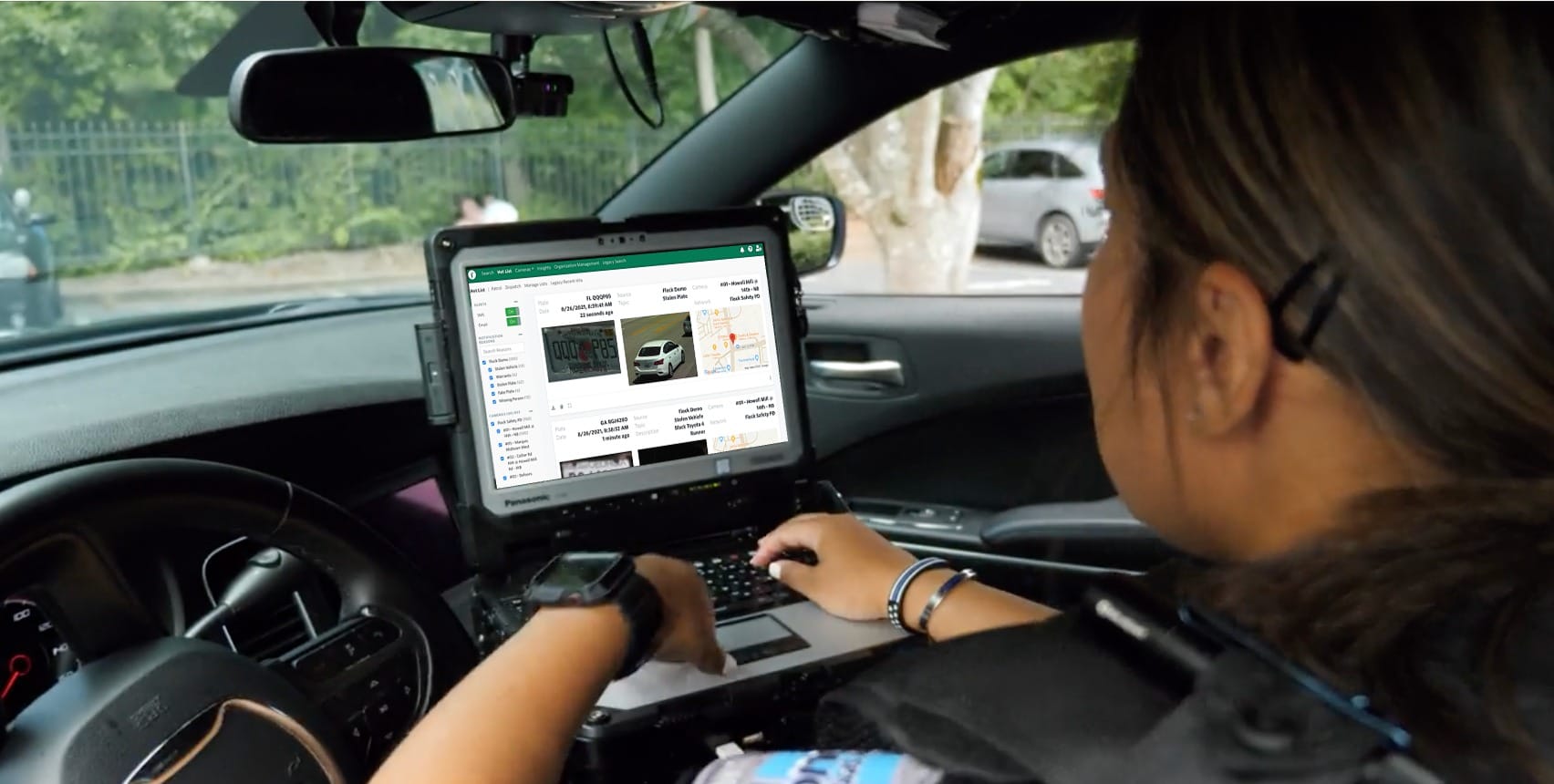Earlier this month authorities in Texas performed a nationwide search of more than 83,000 automatic license plate reader (ALPR) cameras while looking for a woman who they said had a self-administered abortion, including cameras in states where abortion is legal such as Washington and Illinois, according to multiple datasets obtained by 404 Media.
The news shows in stark terms how police in one state are able to take the ALPR technology, made by a company called Flock and usually marketed to individual communities to stop carjackings or find missing people, and turn it into a tool for finding people who have had abortions. In this case, the sheriff told 404 Media the family was worried for the woman’s safety and so authorities used Flock in an attempt to locate her. But health surveillance experts said they still had issues with the nationwide search.
“You have this extraterritorial reach into other states, and Flock has decided to create a technology that breaks through the barriers, where police in one state can investigate what is a human right in another state because it is a crime in another,” Kate Bertash of the Digital Defense Fund, who researches both ALPR systems and abortion surveillance, told 404 Media.
On May 9, an officer from the Johnson County Sheriff’s Office in Texas searched Flock cameras and gave the reason as “had an abortion, search for female,” according to the multiple sets of data. Whenever officers search Flock cameras they are required to provide a reason for doing so, but generally do not require a warrant or any sort of court order. Flock cameras continually scan the plates, color, and model of any vehicle driving by, building a detailed database of vehicles and by extension peoples' movements.
Cops are able to search cameras acquired in their own district, those in their state, or those in a nationwide network of Flock cameras. That single search for the woman spread across 6,809 different Flock networks, with a total of 83,345 cameras, according to the data. The officer looked for hits over a month long period, it shows.
Flock users are able to run a “Network Audit” to see what other agencies have searched their cameras. The data reviewed by 404 Media shows this was a nationwide search because evidence of the search appeared in logs held by different police departments on the other side of the country from Texas. Muckrock user Rose Terse obtained two of the sets of data from Yakima and Prosser police departments in Washington via public records requests. The same search also appears on the audit report for the Mount Prospect, Illinois Police Department.
Sheriff Adam King of the Johnson County Sheriff’s Office told 404 Media in a phone call that the woman self-administered the abortion “and her family was worried that she was going to bleed to death, and we were trying to find her to get her to a hospital.”
“We weren’t trying to block her from leaving the state or whatever to get an abortion,” he said. “It was about her safety.”
He said the search “got a couple hits on her on Flocks in Dallas,” but Flock was not responsible for ultimately finding her. Two days later the Sheriff’s Office was able to establish contact with the woman and verify she was okay, he added.
On the fact that the Sheriff’s Office performed a nationwide search and not just one in Texas, King said “that way we’re hitting everything, every possibility.”

Eva Galperin, director of cybersecurity at digital rights organization the Electronic Frontier Foundation (EFF), told 404 Media “The idea that the police are actively tracking the location of women they believe have had self administered abortions under the guise of ‘safety’ does not make me feel any better about this kind of surveillance.”
Elizabeth Ling, senior counsel for If/When/How, a reproductive rights group that runs a reproductive legal rights hotline, told 404 Media that many criminal cases they’ve seen originate after someone close to the person getting an abortion reports it to police. A research report published by the group found “about a quarter of adult cases (26%) were reported to law enforcement by acquaintances entrusted with information, such as friends, parents, or intimate partners.”
“Self-managed abortion is extremely safe. What we have found in our work and our research is that the greatest risk posed to people self-managing their abortion is state violence and criminalization. I understand wanting to keep your loved ones safe,” Ling told 404 Media. “When people have died from pregnancy or from being denied an abortion, it makes sense that people are scared that they could lose a loved one. But, when police and prosecutors have wrongly investigated and punished people for their abortion or pregnancy loss it is equally fair to fear criminalization if police are aware of your abortion. All of this shows why it is essential for people to have access to accurate information about their options and legal risk. Because no one should face criminalization for their abortion.”
Almost all abortions are illegal in Texas, where the officer who performed the search was based. But in Washington and Illinois, where at least some searched Flock cameras were located, abortion is legal before viability of the fetus and is seen as a fundamental right. Courts have repeatedly protected people’s right to travel to get an abortion, but the specter of this type of surveillance has led to widespread fear among people who have sought legal advice from abortion helplines like If/When/How.
“We hear this every day on the helpline, there is an overwhelming fear that they’re being watched and tracked by the state, whether that’s through their internet history or through traveling,” Ling told 404 Media. “There have been multiple court decisions within the abortion context reaffirming the right to travel, but you have law enforcement agencies utilizing tools to extend their reach outside of their jurisdiction to surveil and try to find people. Even if that doesn’t ultimately result in an actual criminal prosecution, that is still a complete invasion of someone’s privacy and it increases people’s fear.”
The surveillance of women seeking abortions has long been a problem, and with the 2022 Dobbs Supreme Court decision allowing states to criminalize abortion, experts have warned that patients, the people who help them, and their doctors are at a much higher risk of surveillance and criminal prosecution.
“One of the biggest issues that has emerged in the post-Dobbs era is there’s all these things that are possible in terms of how people might use the tools available to go after abortion seekers or surveil abortion seekers but then you’re not sure which ones are actually going to be used,” Bertash said. “Knowing this helps us hone in what tools in the field law enforcement is actually using.”
“We saw the groundwork for this laid pretty early. You had anti-abortion activists doing surveillance of abortion clinics, license plates, the people driving in and out, but they would stand in the parking lot with pen and paper writing down license plates,” she added. “When you have this legacy of manual surveillance and then a large tech company offers this type of surveillance as a service, those same tactics, techniques, and customers coming from an antiabortion legacy are handed these automated tools handed on a silver platter, it’s shocking to see it but also it felt inevitable.”
Ashley Emery, senior policy analyst in reproductive health and rights at the National Partnership for Women & Families, told 404 Media “The risks of this intrusive government monitoring cannot be overstated: law enforcement could deploy this surveillance technology to target and try to build cases against pregnant people who travel for abortion care and those who help them. This incident is undeniably a harbinger of more AI-enabled reproductive surveillance and investigations to come. Especially for women of color who are already over-surveilled and over-policed, the stakes couldn’t be higher.”
“Police in one state can investigate what is a human right in another state because it is a crime in another.”
Neither the Yakima or Prosser police departments responded to a request for comment asking if they were aware an officer in Texas had searched their cameras for an abortion-related reason.
Flock told 404 Media in a statement: “Flock is committed to ensuring every customer, including law enforcement, can leverage technology in a way that reflects their values, and we support democratically-authorized governing bodies to determine what that means for their community. Flock does not decide which criminal codes to enforce in Texas or Washington. We rely on the democratic process. And in this case, it appears Flock was used to try to locate a vulnerable person who may have been a danger to herself.”
Earlier this week, 404 Media reported about the use of Flock cameras and its lookup tools to help the Department of Homeland Security and Immigrations and Customs Enforcement. Ling of If/When/How said the use of Flock in that context cannot be separated from the use of it in an abortion context.
“This use of license plate recognition in an immigration context is not separate and apart from the criminalization of abortion. In both cases we’re talking about the state wanting to control what people do with their bodies,” Ling said. “There is a firmly established constitutional right to travel, but unfortunately that does not mean that the state will not do everything in its power to infringe on people’s bodily autonomy. It’s really important to understand that this is happening at the county level, because regardless of what is happening at a national level, there are decision makers at the state and county levels who feel emboldened to use these tools of punishment and surveillance.”
In October, 404 Media reported on a tool bought by the U.S. government which tracked cellphones and could be used to monitor visits to abortion clinics.
Update: this piece has been updated with additional comment from Ashley Emery.













